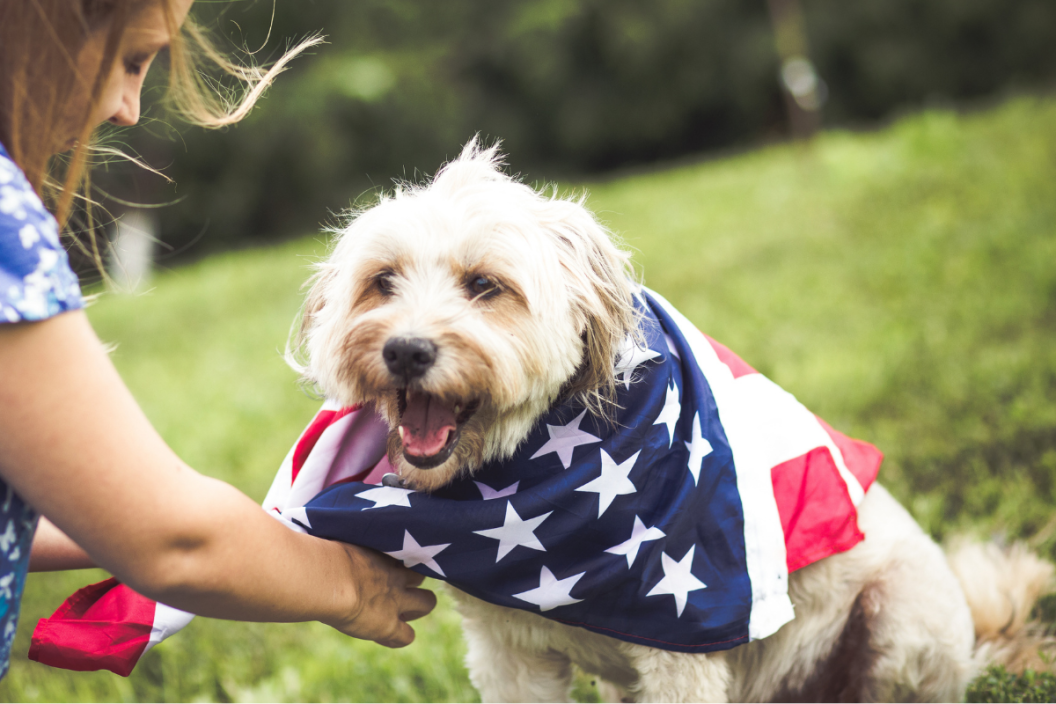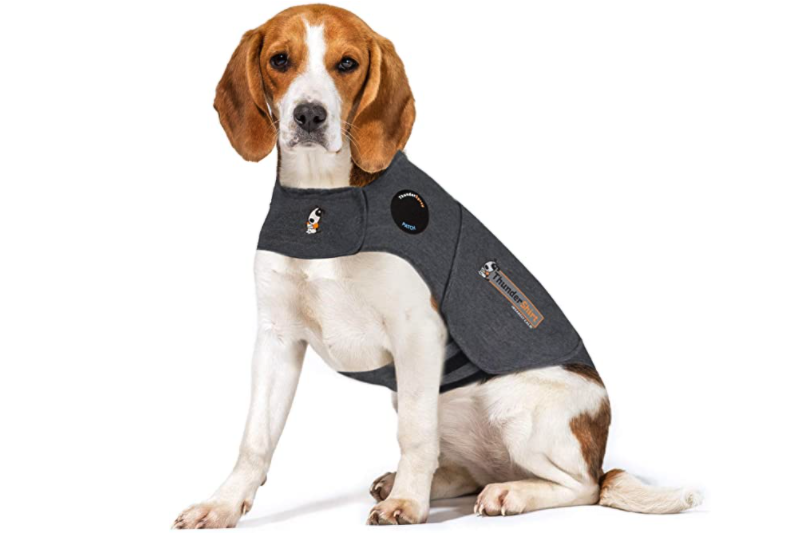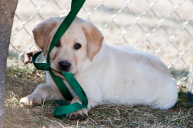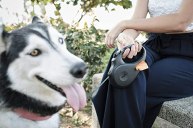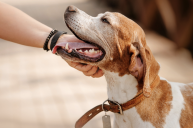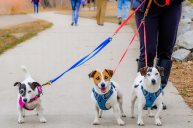Some shelters say their busiest day of the year is July 5th because more dogs are lost July 4th than any other day of the year.
Keeping your pup safe is one of the best ways to ensure a happy Fourth of July! Fireworks can startle a dog, even if you think it's fine with noise, since they are unpredictable and loud. Fireworks have a well-known history of causing dogs to bolt in fear.
Read on for the best way to prevent your dog from bolting out of sight at the loud noise of fireworks. Your dog should stay securely with you and avoid an unwanted stay at the shelter or the danger of being lost. Use these simple tips to keep your dog safe this holiday and lower the risk of lost dog heartbreak.
1. Keep Your Dog at Home
https://www.instagram.com/p/BzfzvCzBWc9/
Many dogs react badly to the loud and unpredictable sound of fireworks, and some simply run away in a panic. The best way to keep your dog safe is to keep him or her safely at home, away from the heat, the crowds, and of course, the noise of fireworks.
Even at home, an anxious dog may make a break for it and run after being frightened by the noise of fireworks. Make sure the windows and doors are secure (pets have been known to bolt through screens). Reconsider leaving a dog outside (tie-outs and fences may not be as secure as having your dog inside). Ensure that any guests coming in or out of your house understand the dog is not to be let outside unless on a leash during this holiday.
For pups that struggle with anxiety during the holiday, consider an anxiety jacket like this one below. They are easy to take on and off, providing an added sense of security when fireworks begin.
If your dog is comfortable in a crate, it may be a secure place for your dog to stay while you enjoy the festivities. Exercise your dog early in the day, and then make them as comfortable as you can at home. An anxious dog also tends to chew or scratch: perform a check to put toxic or valuable items out of reach. Soothing music or a low television may help mask fireworks and crowd noise. Some dogs take medication for anxiety. If medication will help your dog, make sure to arrange with your veterinarian in advance.
2. Keep Your Dog on a Leash
A leash is far easier to handle than days spent trying to find a pup that bolted, and heartbreak if you can't find your puppy. If you are not able to keep your dog at home, keep him with you and on a leash at all times, with a properly-fitted collar.
One shelter in Columbus, Ohio, reported taking in 77 dogs one year during July 4th celebrations and reports that the days around the fourth are the busiest all year. This is well known among shelters across the United States, along with a similar increase in lost dogs due to loud thunderstorms.
3. Make Sure ID Tags Are up to Date
https://www.instagram.com/p/BV7j9EVgKwV/
A phone number should be clearly visible on a collar and/or a tag. Pet stores sell engraved tags, sometimes while you wait, and they are also available at vet offices.
Select a collar with your dog's name and your number embroidered right on the collar, or you can write your number on a collar with a waterproof marker. Your telephone number on a tag or collar makes it far easier to recover your dog quickly because it's easier for someone who finds your dog to call you right away.
Do you think that a dog license is good enough? A dog license through the town can identify your dog IF the town office is open. The fastest way for someone to be able to reach you to return your dog is your phone number on a tag or collar.
4. Your Dog's Collar Should Fit
Your dog can easily slip out of its collar if it is not adjusted correctly. How can you be sure your dog's collar is properly fitted? You should be able to slip two fingers easily between the collar and the neck of your dog. A loose collar will slip right off when your dog twists and pulls against a leash or other hold you have on the collar. Check the fit of collars regularly.
5. Microchip Your Dog
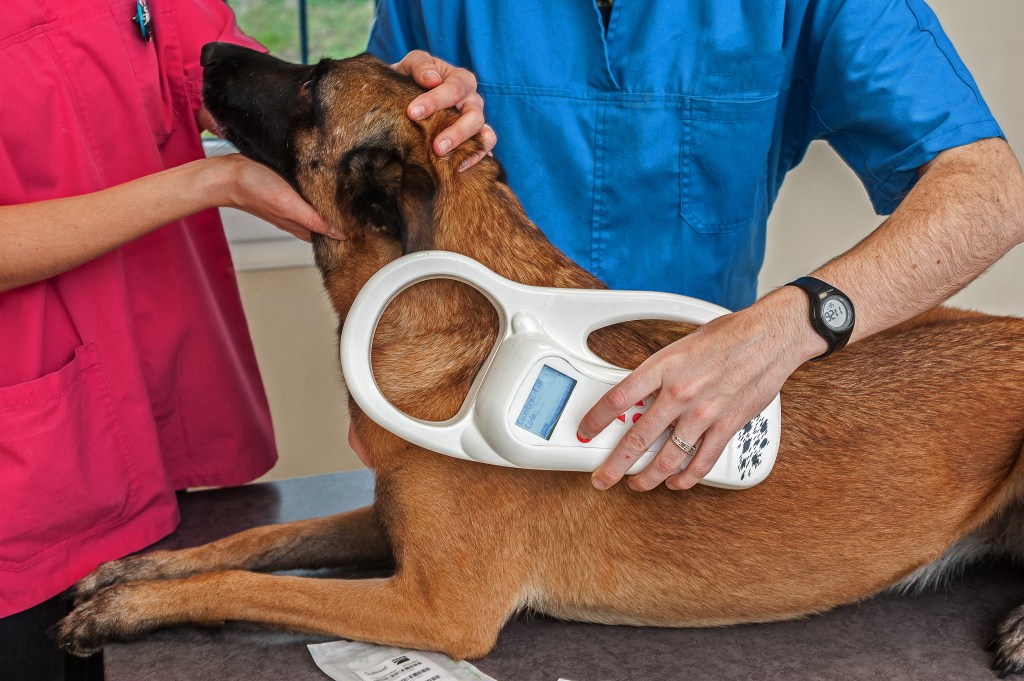
What is the absolute best way to ensure your dog is returned if found? A microchip and an easily-read tag or collar are best. Your dog cannot slip out of or remove a microchip like it can a collar or a tag. Shelters and vets examining a lost or unclaimed dog should find the chip and (provided you have kept your contact information up to date) return your pup.
The 4th of July is a very stressful holiday for pets and wild animals, but being prepared as an owner can help make this special holiday safe and secure for pets.
Let us know if you have any questions about these pet safety tips or how to get in touch with animal shelters if your pet gets lost!
Products featured on Wide Open Pets are independently selected by our editors. However, when you buy something through our links, we may earn a commission.
Share your pet photos at our Wide Open Pets Instagram on a safe and happy Fourth of July!
This article was originally published June 24, 2019.
